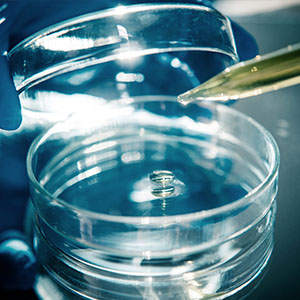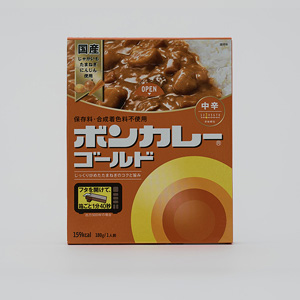Research into soy isoflavones was initiated at the Otsuka Pharmaceutical Saga Nutraceuticals Research Institute in 1996. At that time, soy isoflavones were known to affect feminine health and beauty, but the mechanism had not been clarified. Looking at health issues related to women's life stages, Otsuka aimed to contribute to realization of a society in which all women could live long, active and healthy lives. Resolution of this puzzle was a long-cherished goal for a research institute focusing on the theme of women's health. But six years of research could not come up with positive results, and the project was considered a failure. The research team dispersed, leaving only two members still involved.

“Recoup that failure.” These are the stern words that spurred renewed efforts. Anyone is capable of failure. But regrets can't change the future. The remaining research team was given one final chance. The time limit was three months. During that time, they were tasked with obtaining results that would lead to commercialization. These were the harsh conditions under which they launched their final challenge. They focused on equol, a compound produced from one of the soybean isoflavones, daidzein, by intestinal bacteria. Over the course of six years, research had shown that equol, with a structure resembling the female hormone estrogen, could function to alleviate various feminine health concerns. Commercialization of this compound could benefit women the world over. The research team was inspired.

The lactic acid bacteria that produces equol needed to be identified from among more than 1,000 intestinal bacteria. There was only a single method. Bacteria samples from people with the ability to produce equol needed to be confirmed one by one. The team, including one new member, became immersed in this monumental task. Every spare moment was devoted to research, but day after day, the target bacteria eluded identification. Despite the atmosphere of impatience, time continued to pass. The final day of the three-month time limit arrived. Once again, the research seemed destined to fail.
However, the morning after the deadline, the bacteria that produces equol was identified from the 1,300th sample. Investigating the identity of the bacteria, the team became aware that it was the same species of lactic acid bacteria found in a certain Italian cheese. With the discovery of this clue to commercialization of equol the research, on the verge of discontinuation, came alive with renewed focus and energy.

Research over the course of 18 years resulted in the 2014 launch in Japan of EQUELLE, the world's first* food product containing equol fermented from soy isoflavones by lactic acid bacteria. Numerous studies conducted among women aged 40 and over, subject to various physical and emotional changes due to reduction in female hormone levels, have provided scientific evidence of the efficacy and safety of equol. To promote accurate understanding of the characteristics, EQUELLE staff were stationed throughout Japan, paying regular visits to physicians and pharmacists. Many women view physical and emotional changes following menopause as “signs of aging” or “temporary symptoms,” causing them to endure discomfort and avoid active measures to alleviate discomfort and distress. However, government programs to encourage women's participation in society and corporate initiatives supporting health and wellbeing have resulted in increased understanding among women and among society at large. These trends have facilitated cooperation by corporations and local entities, with a focus on public health initiatives related to women's healthy aging. EQUELLE has become widely accepted as a “basic supplement for women's health,” supporting health, beauty, and positive lifestyle choices. Launched in the U.S. market in 2019, EQUELLE continues to stimulate health-consciousness of women around the world, rewarding the obsession of researchers dedicated to supporting women's health.










